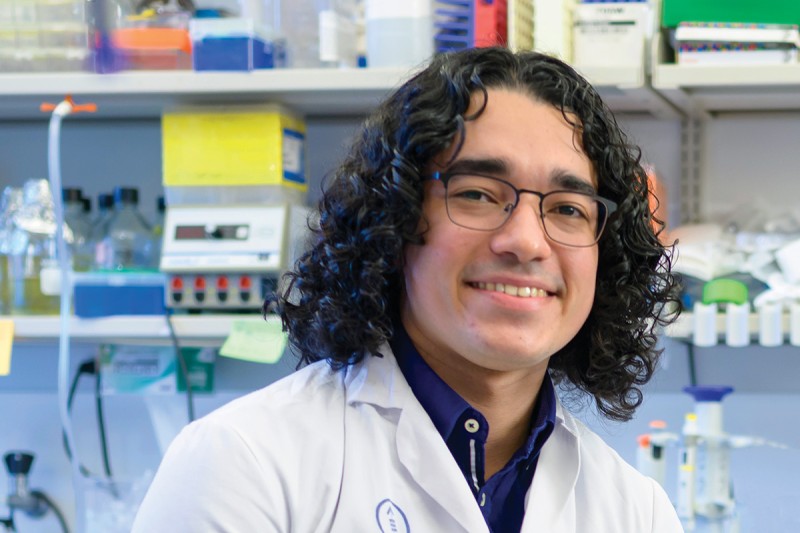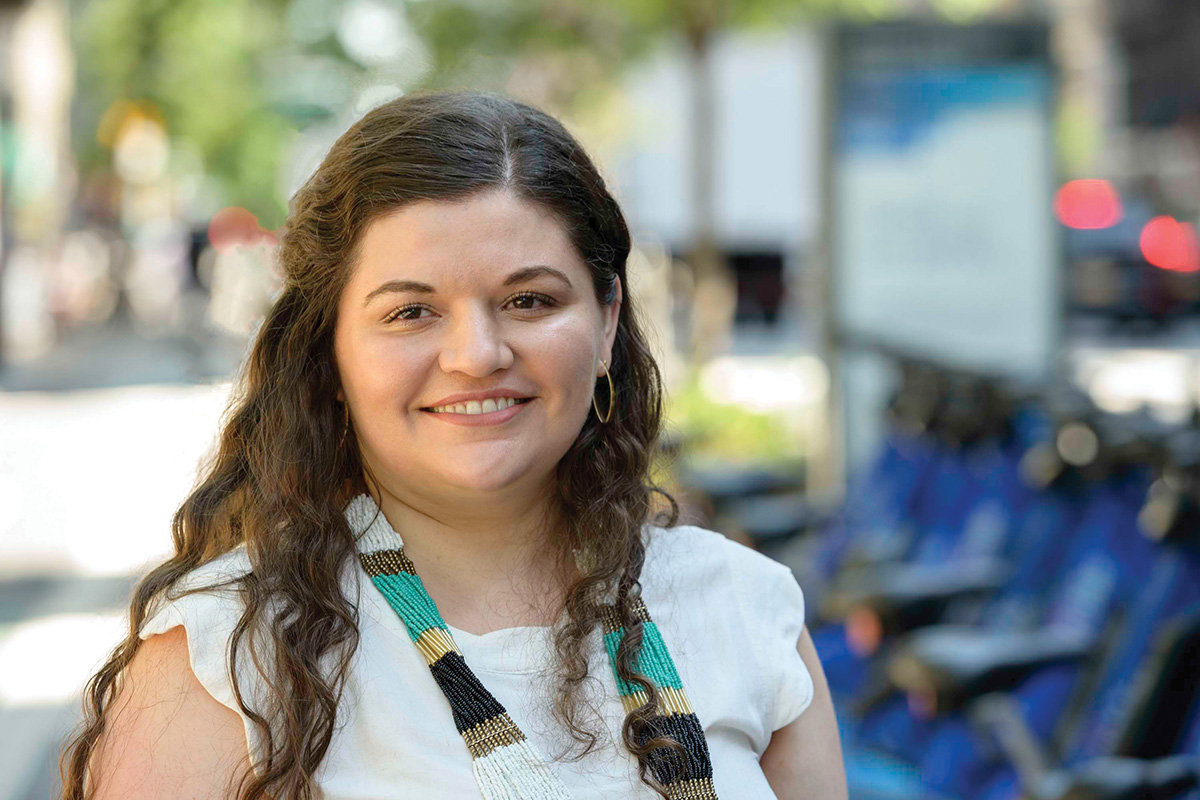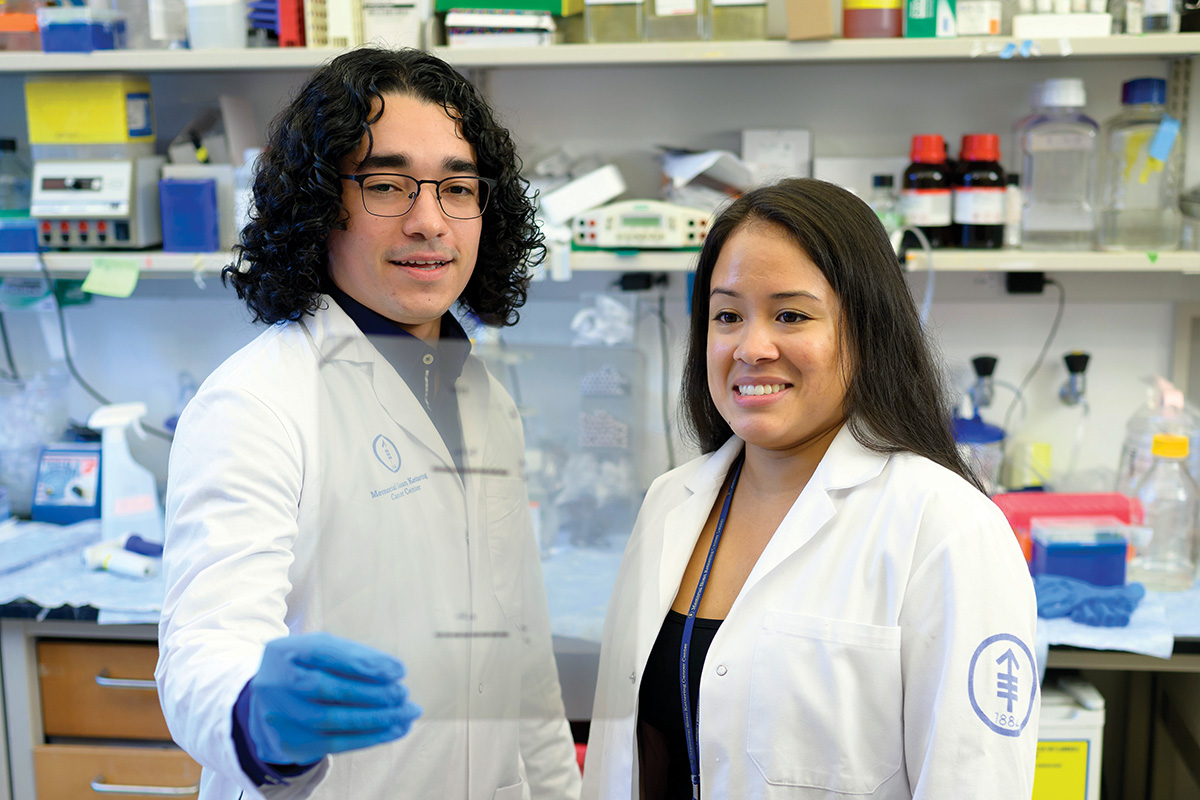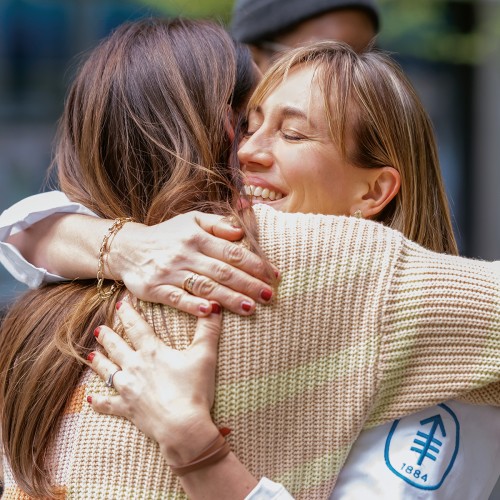
Navigating the arduous path to become a biomedical researcher requires lots of support — and Memorial Sloan Kettering Cancer Center (MSK) is deeply committed to help.
A particular focus is training a diverse group of aspiring scientists, particularly those who come from backgrounds that are underrepresented in biomedical research. They bring new ideas to the table. And they help MSK better reflect the people for whom we care.
That’s the philosophy of a new MSK effort launched in 2021 called the MSK Bridge program. Carlos Ayala Santos is its first student. A college graduate from Puerto Rico, he is spending two years as a postbaccalaureate scholar in the lab of MSK physician-scientist Piro Lito.
Leading this new program is neuroscientist Yaihara Fortis Santiago, Associate Director, Office of Postdoctoral Affairs and Trainee Diversity Initiatives.
Carlos’ Story
My mother is a high school biology teacher in Toa Baja, Puerto Rico. As a kid, I would accompany her to class, and I found whatever she was teaching really interesting. When I got to high school, I competed in the school’s science fair with a project focused on coral reefs and how they are being bleached by rising acidification of the ocean. To my surprise, I won the competition!
This initial exposure to research motivated me to attend a summer program at the University of Puerto Rico Medical Science Campus. I became fascinated with the study of cancer because so many lifesaving questions need to be answered.
I was accepted at my college, the University of Puerto Rico, Mayagüez Campus, as a scholar to uncover novel compounds from medicinal plants that can hopefully be developed into chemotherapeutic drugs for cancer.
When the COVID-19 pandemic started, everything shut down. But not my ambition.
I had learned about an MD-PhD, a physician-scientist who both does research and cares for people. I knew pursuing this path was highly competitive and difficult. After the disruptions of COVID — and continuing challenges in Puerto Rico after Hurricane Maria a few years ago — I wanted to find a way to improve my credentials before applying for graduate school.
The MSK Connection

Then I had one of the luckiest breaks that’s ever happened to me.
I heard Dr. Yaihara Fortis Santiago speak at an online conference through my university about graduate school. Like me, she is also originally from Puerto Rico! I asked her if MSK had any opportunities for people looking to gain experience before applying to graduate school.
She told me MSK was looking to get a postbaccalaureate program off the ground. Eventually, I was accepted to be the first student in a pilot project for a two-year program, now called the Bridge program.
Lab Life
I am working in the lab of Piro Lito in the Human Oncology and Pathogenesis Program. Dr. Lito is an MD-PhD, doing exactly what I hope to do in the future. In his lab, we study different therapeutics and mechanisms against a famous oncoprotein involved with cancer called KRAS, which until recently was thought to be “undruggable.” My project is trying to understand the functioning of specific chemotherapeutics aimed at KRAS.
I also help other lab members with their projects and make sure the lab is running properly. I’m very grateful that my mentor, Dongsung Kim, has been so supportive and patient as I master new techniques.
Getting to the Next Step
The MSK Bridge program is like a trampoline that propels a person and allows you to show what you’re made of.
I think that the chance for a wider variety of students to engage with people here in MSK will set the stage to uncover very important things.
Yaihara Fortis Santiago on the MERIT Program
Of several initiatives to diversify the people we train, one of the most important is called MERIT, which stands for Maximizing Excellence in Research Innovation and Technology.

At the undergraduate level, we begin with interns who take part in MSK summer programs. In the transition from college to graduate school, our new Bridge program that supports Carlos Ayala Santos will welcome eight scholars this summer.
On the graduate and postdoctoral level, MERIT fellowships support talent that is already in our labs. In 2021, the MERIT Sawyers Fellowship was created to fund the recruitment and career development of top scientists from groups that have historically been underrepresented in science.
Similarly, we recently launched the Mandel Fellowships for scientists at the graduate and postgraduate levels. The fellowships provide funding to cover two to three years of salary as well as money to travel to conferences to present their research, which is crucial.
Why These Programs Are So Important
Some people might not have the social capital to penetrate the networks of their white colleagues or attend the top programs that are dedicated to science from very early in life. I’ve experienced some of those challenges myself, when I came to study biomedical science in the States and English was my second language.
Our colleagues in Development have done a phenomenal job of finding the funding support to help launch MERIT and deserve a lot of recognition. And so many people in the MSK community have raised their hands and said, “How can I help?” — including faculty and board members.
Individuals need to think in their day-to-day life how they can support and nurture talent, from everywhere. We want people to get excited, roll up their sleeves, and be part of the solution.
